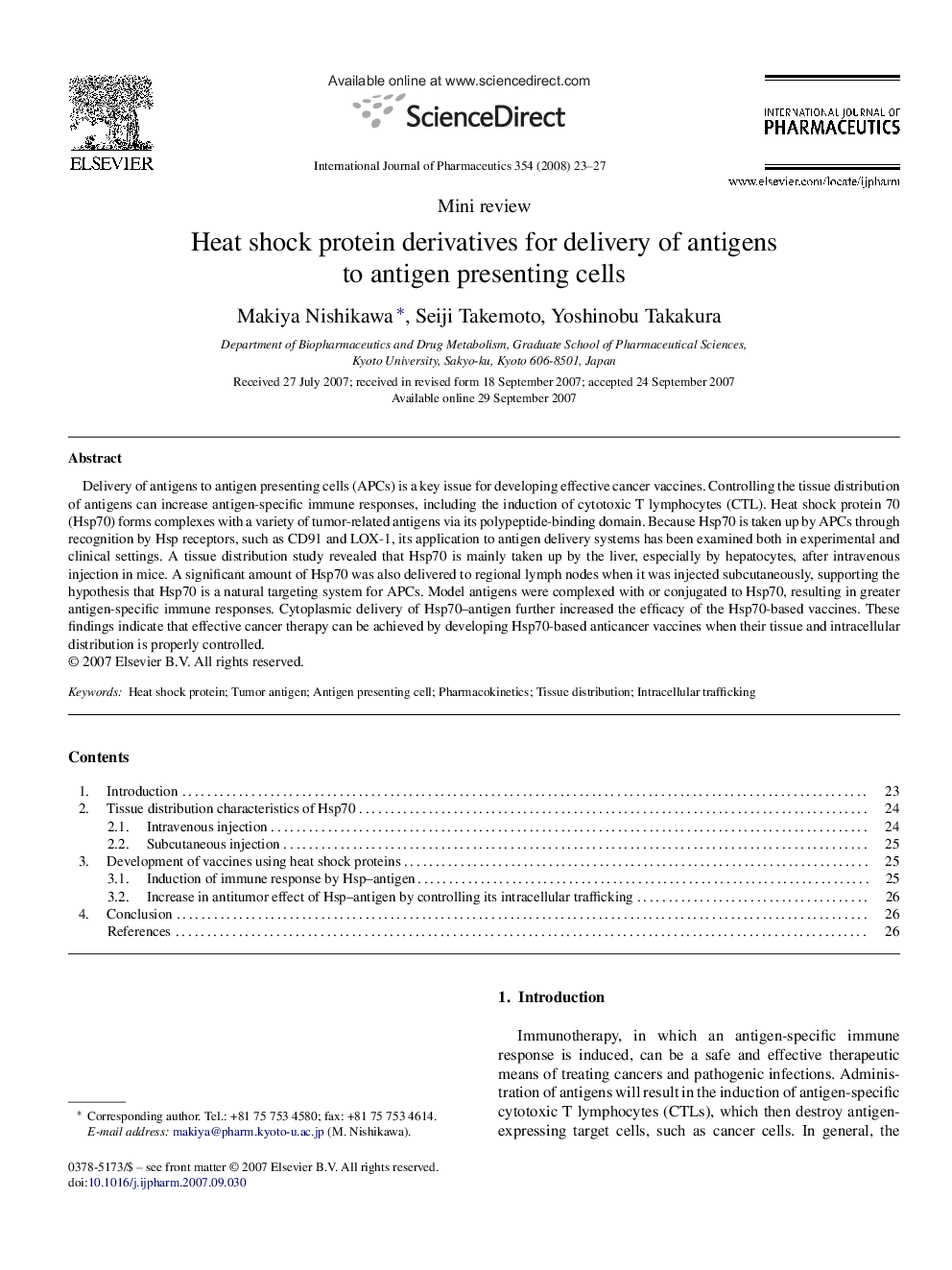| Article ID | Journal | Published Year | Pages | File Type |
|---|---|---|---|---|
| 2505524 | International Journal of Pharmaceutics | 2008 | 5 Pages |
Delivery of antigens to antigen presenting cells (APCs) is a key issue for developing effective cancer vaccines. Controlling the tissue distribution of antigens can increase antigen-specific immune responses, including the induction of cytotoxic T lymphocytes (CTL). Heat shock protein 70 (Hsp70) forms complexes with a variety of tumor-related antigens via its polypeptide-binding domain. Because Hsp70 is taken up by APCs through recognition by Hsp receptors, such as CD91 and LOX-1, its application to antigen delivery systems has been examined both in experimental and clinical settings. A tissue distribution study revealed that Hsp70 is mainly taken up by the liver, especially by hepatocytes, after intravenous injection in mice. A significant amount of Hsp70 was also delivered to regional lymph nodes when it was injected subcutaneously, supporting the hypothesis that Hsp70 is a natural targeting system for APCs. Model antigens were complexed with or conjugated to Hsp70, resulting in greater antigen-specific immune responses. Cytoplasmic delivery of Hsp70–antigen further increased the efficacy of the Hsp70-based vaccines. These findings indicate that effective cancer therapy can be achieved by developing Hsp70-based anticancer vaccines when their tissue and intracellular distribution is properly controlled.
